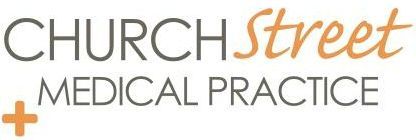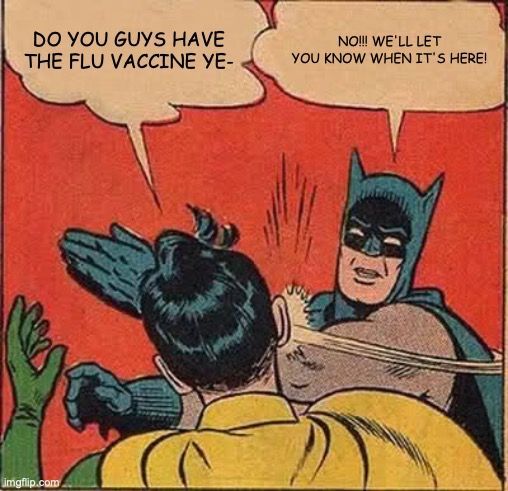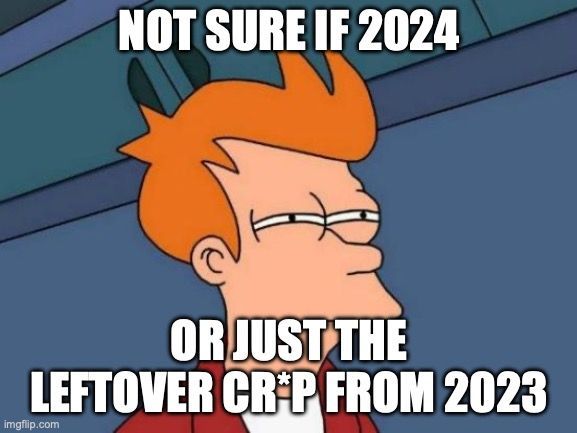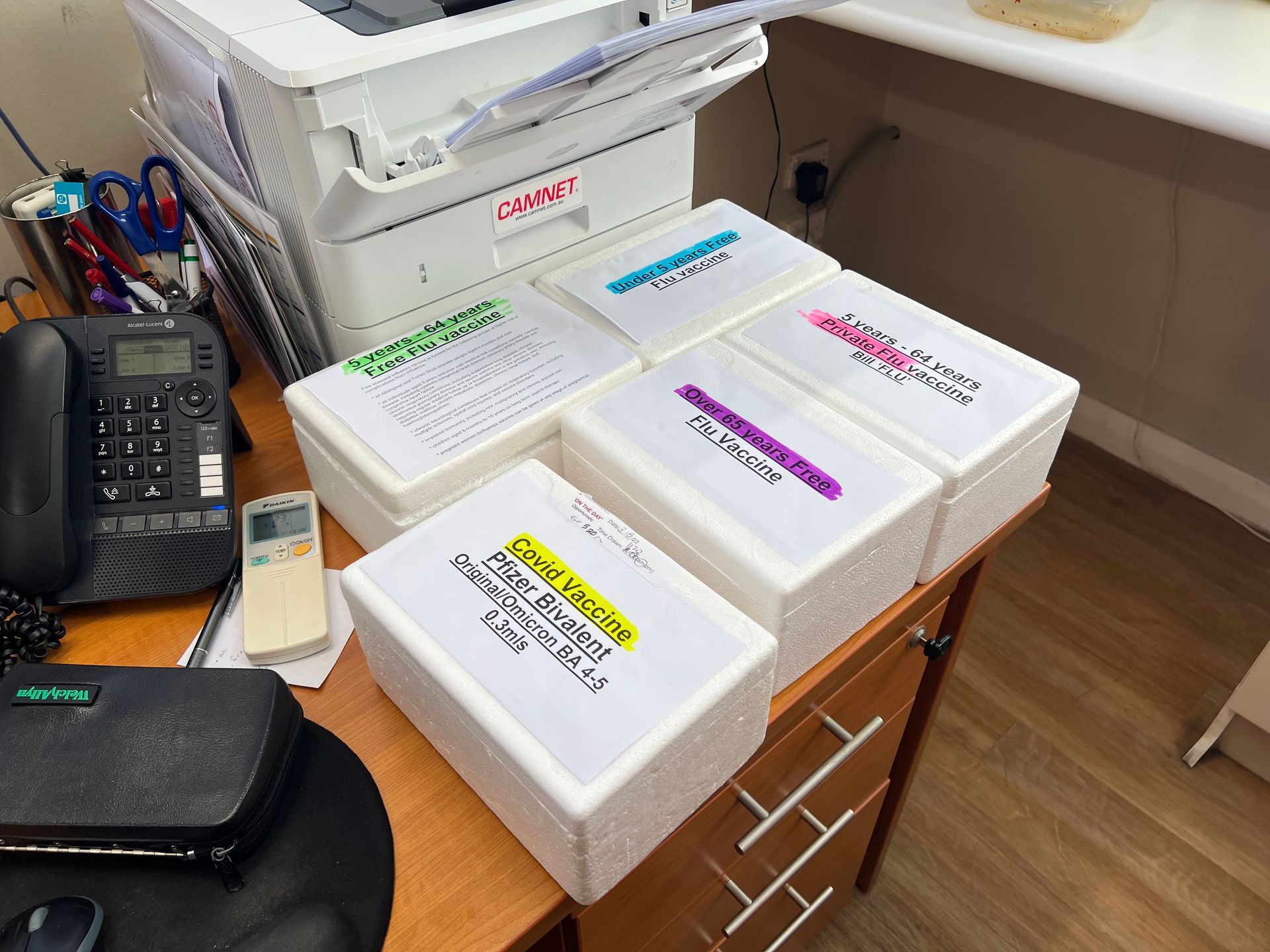Bulletin - February, 2023
and just like that, it's February...
With the end of January comes the return to regular routine - but also a big 'welcome back' to everyone joining us after the December/January break! I'm hoping that you've had a good break and feeling (reasonably) well-refreshed as things come back into full swing!
Farewell Dr Michael Tran...

Sadly, Michael will be leaving us from 12th April.
Michael has been an important fixture at CSMP since he began with us to complete his training in 2017, and quickly became one of the most sought after GPs in the area. His wide range of clinical skills and excellent rapport with his patients certainly endeared him to the community, and we wish him every success (be it in clinical practice or in academia) as he finishes up his time with us in April!
The Concession Fee...
Following discussions at the last Doctors' Committee meeting for 2022 and expressions of interest from last month, there has been broad support for removing the default CSMP position of bulk-billing HCC (green and gold) holders. As such, all patients aged 65 and under have been notified that from 1st March, they may no longer be bulk billed for their attendances.
As always, billing types will be at the GP's discretion, but we've notified the patient base (aged 65 and under) that a gap fee will likely apply. The details of this structure can be viewed in the chart below:
| Item Number | Concession Fee | Rebate | Out-of-Pocket Cost |
|---|---|---|---|
| Standard Consult (23) | $65 | $39.75 | $25.25 |
| Long Consult (36) | $105 | $76.95 | $28.05 |
| Extended Consult (44) | $140 | $113.30 | $26.70 |
With this in mind, it is now even more imperative that billing types be accurately used when directing reception to bill (and also avoiding the direction 'usual billing'), so please be mindful to choose either concession, standard or direct bill when finalising a visit!
Closing the Gap...
Given the start of the new calendar year, there tend to be a few extra things that need renewal - the first one is patient registrations for Closing The Gap (CTG). To try and streamline our approach, here are a few things we're trying and to remember:
- CTG registrations need to be renewed each CALENDAR year; this is primarily to ensure that a patient's care is co-ordinated from one practice, and so if a patient moves, their care is handed over to the next practice.
- CTG PBS co-payment registration is SEPARATE to the general CTG registration, and is only done ONCE. This registration tends to be the most difficult to track for patients, as it is a new(ish) requirement and what enables patients to a access PBS medications more cheaply.
- CTG qualifying criteria are that a patient identify as Aboriginal or Torres Strait Islander, have a chronic health condition, and be aged 16 or over.
- Patients that are eligible for their CTG renewal will have their upcoming appointment marked with the icon below:
- Patients should also be offered an indigenous health assessment (MBS 715) when and were clinically appropriate. Like all health assessments, this can be carried out annually.
To hopefully make the process easier in consult, I've also added a new autofill (.CTG) for when the patients attends.
Once consent for renewal has been given, please send me a BP message to complete the process and registration!
Mental Health Care Plans (and why so many seem to be done in January)...
While this is likely well-known to most of you, the rules around Mental Health Care Plans (2715/2717) can be quite confusing particularly for patients, especially when often psychologists may use the terms 'MHCP' and 'referral' interchangeably. To help clear things up (potentially), the guidelines are as follows:
- Mental Health Care Plans last up to 2 years, and entitle a patient to 6 Medicare-rebatable sessions per calendar year (and an additional 4 after a review (2712)).
- The care plan's duration is determined independent of calendar year (i.e. a plan created in Oct 2022 doesn't 'expire' until Oct, 2024). While a plan lasts for 2 years, a new plan can be done every 12 months.
- A plan and review entitle the patient to 10 rebatable sessions with a psychologist per calendar year, so in the above example, a patient could have 20 sessions within 12 months, since they're split across 2 calendar years.
- At the beginning of each new 'care plan year', a new letter of referral is required by the psychologist to access Medicare sessions. A referral letter doesn't become active until after the FIRST session for which it is used (i.e. if a referral is dated June but not presented until August, then the referral's 'start' date would be August).
Hopefully this may clear things up (for all of us)!
The last thing on the subject, is that referrals for PSS (formerly ATAPS) need to be sent through Healthlink (no, not the annoying form system), through the template in BP (PSS - Initial Referral or PSS - Review Referral), and sending to address PSS.
The Elephant in the Room...
For those that have kept an eye on the RACGP and AMA sites (since 2019, in fact), there has been a concern that the interpretation of tax code that generally affords GP practices the liberty of not being subject to payroll tax is currently under scrutiny.
In short, the structure of CSMP (where each GP acts as an independent entity, purchasing secretarial services and rooms from a service provider) might face scrutiny given that the tax definition assumes that regular payments made from a trust entity could constitute employment, rather than contract work, as well as any service agreement that would see a contractor working more than 90 days in a calendar year.
While CSMP has taken steps to minimise this potential scrutiny (i.e service agreements outlining no shared financial liabilities, the use of the Doctors' Committee as a means of directing policy between contractors and the service provider and generally avoiding any language that might imply 'employment' between GPs and CSMP), there are still business practices on which we are seeking clarification. One possible solution is to no longer keep funds in trust (where all payments are made to CSMP before being paid to clinicians). This would mean payments being made directly to GPs, with service fees being invoiced in the usual intervals (and reports being generated for your perusal). Another aspect would be the creation of websites for each practitioner, that would need to be maintained by yourselves.
Regardless, the above list is hardly comprehensive, but gives the thrust of the areas of concern. However the largest of these, would be the potential requirement of paying payroll taxes owing in the event of an audit should CSMP be found non-compliant under the code. Combine this with the tax rate of 5.45% for payroll tax in NSW, a cost that would most certainly either need to be absorbed or passed on to patients.
Both the AMA and RACGP have been seeking clarification and a codified exemption from this element of the Tax Code, with cases tried in Victoria and Queensland in the last few years. While CSMP will continue to seek advice on the above, a more comprehensive discussion should be had once that formal advice is presented. Should you wish to find out more in the interim, please contact either the AMA or RACGP.
For a better articulated version of the above, please click HERE.
Coming Events...
- Admin Meeting - Monday, 6th February -
- Doctors' Committee - Thursday, 9th February - the Committee is seeking new members for 2023. Please contact Anna Connellan if interested!
- Nurses Meeting - Friday, 10th February -
- Practice Lunch - Wednesday, 15th February - to allow us to meet up with members of the CSMP family that would otherwise miss out, lunches this year will rotate between Wednesdays and Thursdays! Bring a plate!










